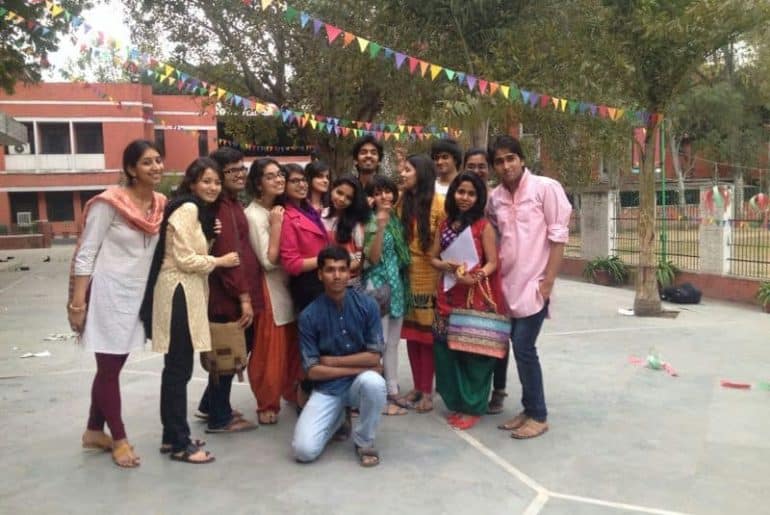A language quite foreign to us has turned out to be the one that we use to communicate with all kinds of people in the present times. Our past provides reasons for it. But is its acceptance a genuine reality?
It is a fact, well acknowledged by all of us Indians that English is a language that has helped us to establish a facilitating link with people living across the country. No matter how much we criticise the penetration of the language in all parts of the country or the effect it has had on us, we still do acknowledge the basic fact that it bridges the gap between a Kashmiri and a Keralite, or a North Indian and a Northeasterner.
The dynamics involved here are simple – we were under the rule of the British for more than 200 years and they put their heart and soul into gaining power over us. With the arrival of the East India Company in 1600, something that no one ever thought about, came true. A country bound together in a unified umbrella despite the different cultural boundaries was under scrutiny. Lord Macaulay observed, realised, and capitalised this. He knew that to divide this country, no wars and weapon could help. And instead what needed to be targeted was language. We were robbed of our own identity and culture, taught by force, a language we did not need to know. That was the beginning of an epic fall. The point remains, could we really control this violation?
In his essay titled ‘Commonwealth Literature’ Does Not Exist, Salman Rushdie writes ‘what seems to me to be happening is that those peoples who were once colonized by the language are now rapidly remaking it, domesticating it, becoming more and more relaxed about the way they use it – assisted by the English language’s enormous flexibility and size, they are carving out large territories for themselves within its frontiers’.Later in the essay, Rushdie says that English was a gift given to us by the British.
Why is it so hard to accept then? It is the third most spoken language in the world after all.
English is a language of the British that has been derived from Latin, Greek, French and some other old languages. It’s a newly developed language that has gained acceptance widely in a very short period of time. Of course, there are countries that condemn and despise the language, but not all of them have been colonies of the Englishmen. The reason why India has welcomed the language in its realm with open arms roots out to the phenomenon that its citizens were coerced to. It is only natural to expect such an outcome. Moreover, since it is a relatively new language, it allows flexibilities that other languages don’t.
The cynicism and negative feelings surrounding the language and its widespread compliance in the geography stand in question now. Because of the rhetoric that arises immediately -what even is there to question? The key to tackle the situation now is to simply accept. Questioning the intrusion of a foreign language in our system is only going to lead to further questions, with no solutions whatsoever. Let us all accept, and live.
Feature Image Credits- Google Sites
Akshada Shrotryia
[email protected]







 The English department of DU has recently been ranked among the top 100 places to study english, by the QS World University Rankings. Ranked in the 51-100 group in QS’s annual survey, DU happens to be in the same league as Durham University, Dartmouth University, Pennsylvania State University, University of Sussex and the like, having beaten the likes of Nottingham and Purdue.
The English department of DU has recently been ranked among the top 100 places to study english, by the QS World University Rankings. Ranked in the 51-100 group in QS’s annual survey, DU happens to be in the same league as Durham University, Dartmouth University, Pennsylvania State University, University of Sussex and the like, having beaten the likes of Nottingham and Purdue.
